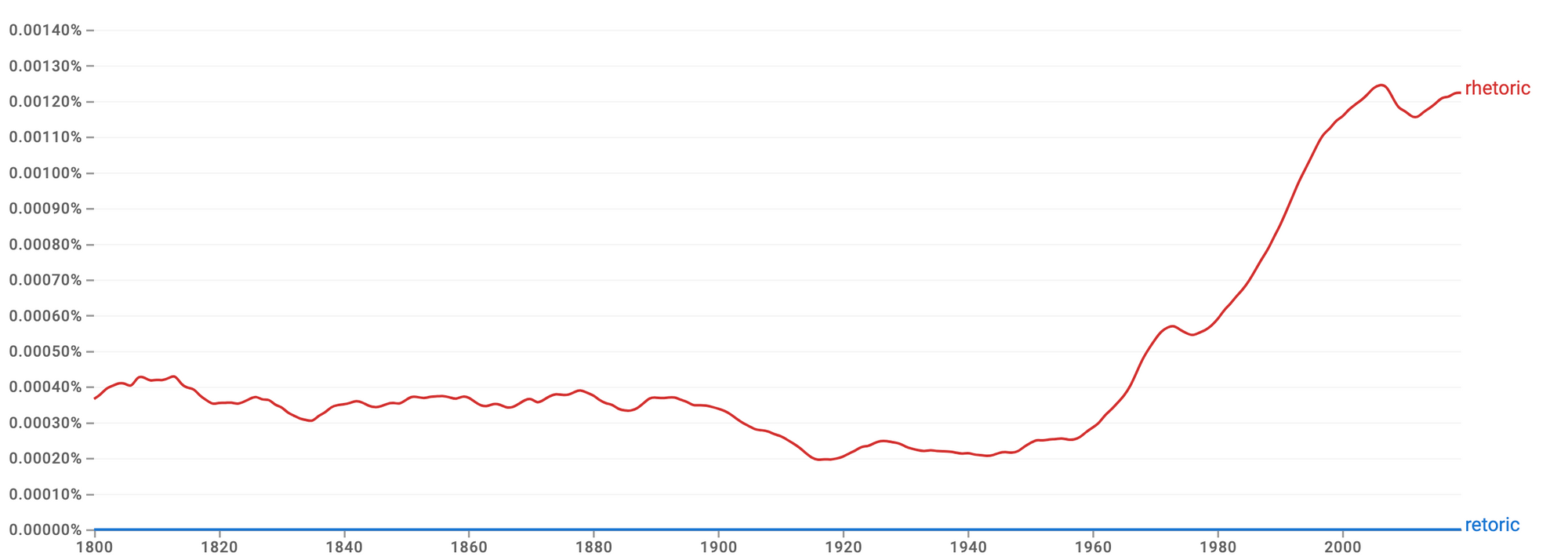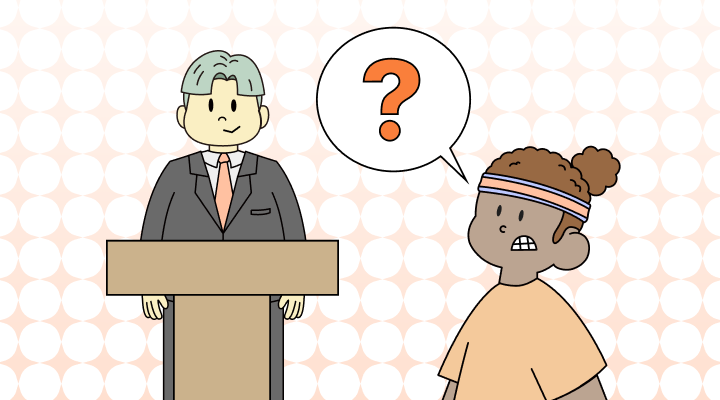- "Retoric" is an incorrect spelling of the word "rhetoric."
- Rhetoric refers to the art or skill of persuasive language and effective communication, often employed to influence or persuade an audience through various techniques and devices.
❌ The politician's eloquent retoric convinced the audience to support his proposed policy changes.
✅ The politician's eloquent rhetoric convinced the audience to support his proposed policy changes.
In this sentence, "rhetoric" refers to the persuasive and skillful use of language, particularly demonstrated by the politician to gain support for his policy changes.
What does "rhetoric" mean?
Within the domain of communication, "rhetoric" encompasses the art and science of employing language effectively to inform, persuade, or entertain an audience. It delves into the strategic use of various techniques and devices to shape meaning, influence opinion, and evoke desired responses.
Key Characteristics:
- Persuasive Intent: Unlike neutral communication, rhetoric is inherently goal-oriented, aiming to elicit specific reactions or actions from the recipient. This persuasive intent manifests in the deliberate selection of language, arguments, and delivery methods.
- Figurative Language: Rhetorical devices often involve the strategic use of figures of speech, such as metaphors, similes, and hyperbole. These devices aim to enhance expressiveness, add emotional resonance, and amplify the speaker's message.
- Logical Reasoning: Beyond mere embellishment, effective rhetoric also employs logical reasoning and argumentation. This involves constructing valid arguments, anticipating counter-arguments, and presenting evidence in a compelling manner.
- Appeal to Audience: Skilled rhetoricians consider the specific characteristics and expectations of their audience. They tailor their language, arguments, and delivery style to resonate with the audience's values, beliefs, and prior knowledge.

The use of "retoric" and "rhetoric" over time
The Ngram graph below shows how often "retoric" and "rhetoric" have been used from the 1800s to the 2000s. "Rhetoric" has seen steady use until sharply increasing from the 1960s to the 2000s, while its misspelling "retoric" has seen nearly zero use.

How to pronounce "rhetoric"
In British English, "rhetoric" is pronounced like "reh·tuh·ruhk".
In American English, "rhetoric" is pronounced like "reh·tr·uhk".
This is just the standard pronunciation, and there may be slight variations depending on regional accents and individual speech patterns.
Why would we misspell "rhetoric" as "retoric"?
- Phonetic confusion: The pronunciation of "rhetoric" may lead to confusion, as the "h" is silent. This can result in spelling it as "retoric" based on how it sounds.
- Unfamiliarity with Greek roots: Not recognizing the Greek origin of the word might lead someone to misspell it, as the "h" is a carryover from its Greek roots.
Other common misspellings of "rhetoric"
- Rethoric
- Rhettoric
- Rhetorik
- Rhetorique
- Rhetorica
Example sentences of the misspelling of "rhetoric" as "retoric"
- "Retoric" is not a recognized word; the correct term is "rhetoric."
- Using "retoric" may lead to confusion and is not considered standard English.
- Remember, when discussing persuasive language, the accurate spelling is "rhetoric."
- Avoid the common mistake of replacing the "h" with a "t" in "rhetoric" – it's not "retoric."
- "Retoric" is an erroneous spelling; make sure to use the correct form, "rhetoric."
Example sentences of "rhetoric"
- The power of his rhetoric swayed even the most skeptical minds.
- Good rhetoric is essential for effective public speaking.
- Her essay was praised for its eloquent use of rhetorical devices.
- The art of rhetoric has been studied and admired for centuries.
- In political debates, candidates often employ persuasive rhetoric to win over voters.
- The professor emphasized the importance of rhetorical analysis in understanding written discourse.
- The student's speech demonstrated a high level of rhetorical skill.
- Rhetoric plays a crucial role in shaping public opinion.
- The ancient Greeks valued rhetoric as a cornerstone of education.
- The campaign relied on powerful rhetoric to convey its message.
🖊️ Bingeing vs. Binging
🖊️ Rasberry or Raspberry: Which Is Correct?
Synonyms for "rhetoric"
- Oratory
- Persuasion
- Eloquence
- Articulation
- Discourse

Want to sound like a native speaker?
Engram’s AI-powered grammar checker makes your English sound like a native speaker’s, suggesting natural English expressions on top of fixing grammar, spelling, punctuation, word order, and vocabulary.

References:














